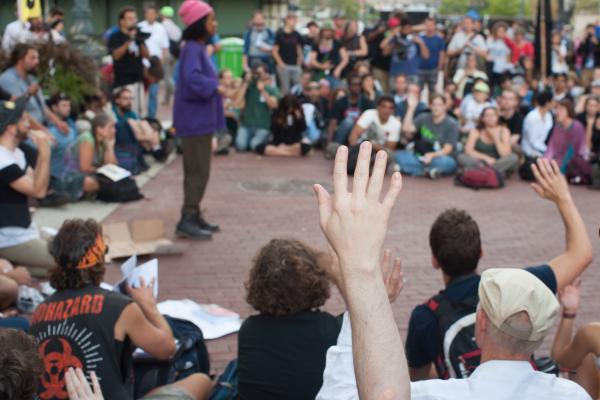In the past few years, a new era of civil rights organizing has emerged out of the depths of tragedy and despair. The list of names of young African Americans who have died at the hand of police, out-of-control vigilantes, and hate-filled white terrorists has fostered profound lament and intense anger. The simple phrase, “Black Lives Matter” has galvanized activism, mobilizing, and organizing.
This new civil rights battle includes legislative battles at state houses like South Carolina, leading to the removal of the Confederate flag from the grounds. There is work to do in D.C. as well. Yet the real front of this new era will be on the corporate scene, on Wall Street and with economic power brokers and corporations. It is time to go “over the heads” of politicians and enter into dialogue and debate with corporations over the value and dignity of dark bodies, and how to reconstruct a moral economy that is not profiting off of people of color.
Read the Full Article

